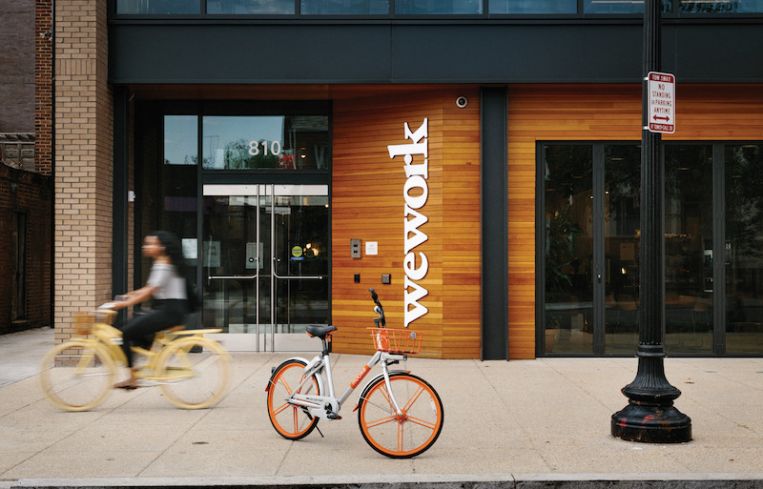Rating Agency Thinks WeWork’s Survival is ‘Questionable’ After Coronavirus Pandemic
By Nicholas Rizzi June 9, 2020 12:08 pm
reprints
Coworking giant WeWork’s survival after the coronavirus pandemic will be “questionable” as fallout from the virus will likely keep people working from home and small- to mid-sized companies wanting to cancel memberships to save money, according to commentary from rating agency DBRS Morningstar.
DBRS Morningstar expects WeWork to “struggle” with members leaving locations in droves because of financial impacts caused by the pandemic, with WeWork’s best hope for survival to significantly pare down its lease liabilities, according to the commentary.
“The coronavirus’ effect on the economy will take time to truly understand; however, DBRS Morningstar expects WeWork to struggle with potential disruptions to the office space in the aftermath of the pandemic,” Steven Jellinek, the vice president of North American CMBS for DBRS Morningstar said in a statement.
The rating agency expects increased unemployment, a GDP contraction, more office vacancies, rents to decrease and more professionals to stay working from home until there’s a vaccine or treatment plan in place in the near future because of the pandemic. All of that could spell trouble for WeWork to attract new members to be able to continue to pay for its more than 800 locations around the world, the agency said.
“With high fixed costs, and an uncertain revenue stream, WeWork is susceptible to incurring operating deficits, especially in an environment in which it struggles to meet sufficient occupancy levels,” according to the report.
A spokesman for WeWork declined to comment, but CEO Sandeep Mathrani previously told CNBC that the coworking company will be in a good position post-COVID-19 since flexibility will be on many company’s minds and has paid rent on 80 percent of its locations in April and May.
“We’re on our path to profitability to 2021,” Mathrani said. “My focus is to right this ship.”
For WeWork to make it through alive, it will near to significantly pare down its lease liabilities — either by renegotiating deals or terminating others — something it already has taken steps to do, according to DBRS Morningstar.
In April, WeWork hired JLL and Newmark Knight Frank to renegotiate its leases and turn others into profit-sharing agreements, the Wall Street Journal reported. Mathrani recently told analysts WeWork was looking to exit or restructure 20 percent of its leases, according to the Financial Times.
DBRS Morningstar’s report said landlords likely won’t want to renegotiate — especially if WeWork occupies a significant chunk of space in a building — because it’s “revenue would take a significant hit.” However, the coronavirus pandemic might make it hard for owners to secure a new tenant, and it will be a costly build-out to reconfigure the space from a WeWork so “landlords may take a chance on WeWork remaining solvent as an option,” according to the report.
A WeWork bankruptcy could spell trouble for Manhattan’s office market as the company is the largest tenant in the borough. It leases 8.5 million square feet and has about $486.3 million in annual rent committed to landlords, a report by Savills found.
WeWork was already bracing for a rocky 2020 before the coronavirus pandemic after its disastrous 2019 that included a failed IPO that shined a light on its money-burning business model, losing its CEO and co-founder Adam Neumann, laying off thousands of workers and having its valuation slashed by nearly $44 billion to $2.9 billion.
It’s also facing a class-action lawsuit from investors over the botched IPO and last week co-founder Miguel McKelvey announced he was leaving at the end of the month.



